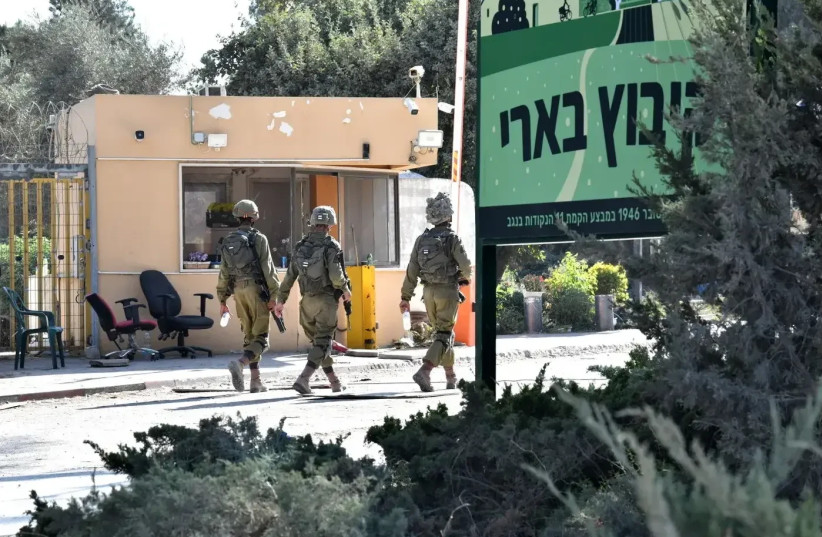Can a business recover VAT on war-related security expenditures? In many countries that have VAT or similar taxes, a business can claim back VAT on business expenditures but not private expenditures.
So, is a war-related security expenditure business or private? The Israeli CPA Institute took this dilemma to the VAT authorities and now has an answer.
The VAT authorities on March 18 published a “Confirmation (ishur) about the treatment of security expenses incurred by 45 Israeli kibbutzim and other settlements near the Gaza Strip (“Security expenses in Kibbutzim and settlements by the Gaza Strip border,” from the Finance Ministry/VAT Branch).
In short, up to two-thirds of the input VAT on war security expenses may be claimed back on VAT returns in the usual way in the 45 settlements. This is good to know, but it leaves open several questions. Here is an overview of the confirmation.
Background
After the October 7 atrocities and multiple threats to civilians near the Gaza border, civilians were ordered on October 12 to evacuate an area that was then closed off on October 17. But emergency response teams (kitot konanut) remained operational in the evacuated areas, resulting in security expenses guarding the plants/enterprises, repairing them, and fuel and maintenance for patrol vehicles.

Related expenses included flashlights, ceramic body armor, tactical clothing, generators, security cameras, boots, helmets, tactical vests, electricity for the security HQ, water, tools, panels, armory, office equipment, and fire extinguishers for the emergency response teams.
All the listed 45 settlements are registered for Israeli VAT purposes as authorized dealers (osek morshe). Clarification was needed regarding whether the 45 settlements are entitled to recover input VAT on such war-related security expenditures.
Analysis and decision
Input VAT is the VAT imposed on goods sold to a business or imported by a business and services rendered to a business. Input VAT is not deductible unless the inputs (supplies) were used in a taxable sale transaction subject to VAT.
What about inputs put to mixed-use – partly for taxable sales and partly not so? The confirmation quotes rules in the VAT Regulations regarding mixed supplies.
The regulations allow input VAT to be claimed pro rata to business usage. Where the business usage is indeterminate, the regulations allow two possibilities, which are more normally applied to company car expenses when the car is used for a mixture of business and private purposes.
Israelis don’t need to keep mileage/kilometer travel logs. Instead, where any asset or service is used mainly for business purposes, the business may deduct (claim) two-thirds of the input VAT on related expenses.
But where any asset or service is used mainly for private purposes, the business may claim one-fourth of the input VAT on related expenses. The confirmation is valid until any amendment is made to the VAT Law or regulations.
The decision
The VAT confirmation says emergency response teams guard all of a settlement – both parts used for business purposes and “municipal” purposes. But the use is deemed to be mainly for business purposes. Therefore, the 45 settlements concerned are entitled to claim two-thirds of the VAT on security expenses they incur. This assumes that the parties concerned are not related to each other. Related parties are not defined. No time limit is stated.
The settlements
The 45 settlements listed in the confirmation are Avshalom, Ohad, Or Haner, Be’eri, Bnei Netzarim, Bror Hayil, Gevim, Gavram, Dorot, Dekel, Zikim, Holot, Yevul, Yad Mordechai, Yesha, Yated, Kissufim, Kfar Aza, Carmiya, Kerem Shalom, Mivtahim, Magen, Miflasim, Nava, Nahal Oz, Nir Yitzhak, Nir Oz, Nir Am, Nirim, Netiv Ha’asara, Sofia, Saad, Ein Habesor, Ein Hashlosha, Alumim, Amioz, Pri Gan, Tzohar, Re’im, Sde Nitzan, Sde Avraham, Shlomit, Shokeda, Talmei Eliahu, Talmei Yosef.
Comments
So, now we know that two-thirds of the input VAT on war-related security expenses may be claimed back on VAT returns in the usual way in the 45 settlements.
No mention is made of places elsewhere in the North and across Israel. But tax rulings are meant to be used as examples.
No mention is made of the income-tax side: Are war-related security expenditures deductible for income-tax purposes? If so, can any resulting losses be offset as business losses against other income that year or business income in future years? To what extent? The two-thirds rule is a VAT rule, not an income-tax rule.
As always, consult experienced tax and legal advisers in each country at an early stage in specific cases.
leon@hcat.co
The writer is a certified public accountant and tax specialist at Harris Consulting & Tax Ltd.
